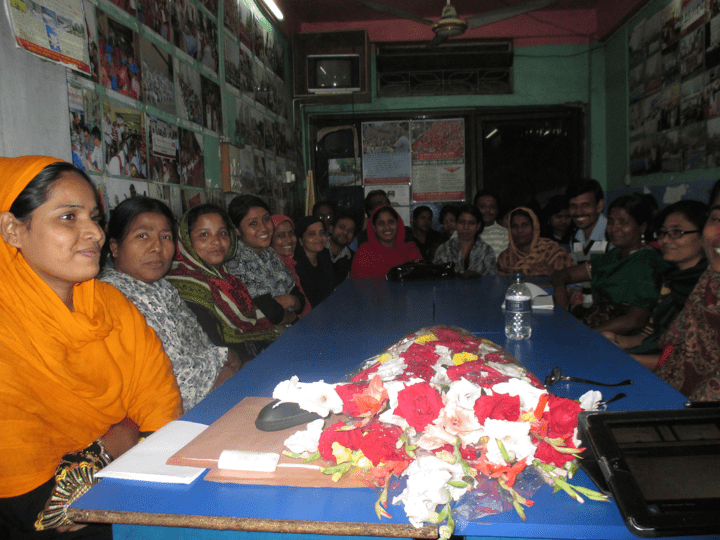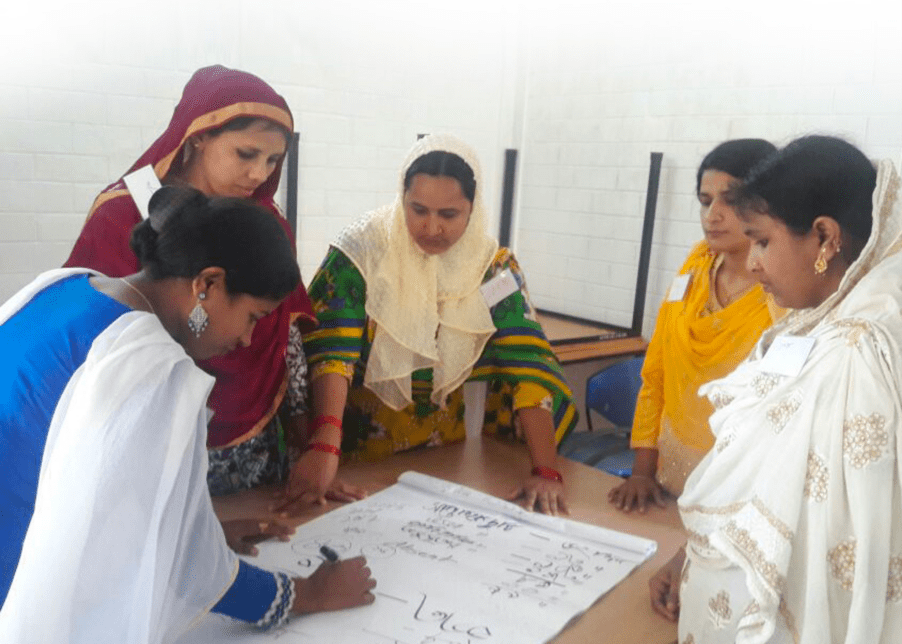Corporate social responsibility has come to be the central feature in how many multinational corporations (MNCs) manage labour standards in their supply chain. To date, the focus of these approaches has generally been top-down: to devise codes of conduct and policies at the corporate headquarters level, often by engaging with NGOs and campaigners who claim to “represent” the rights and interests of workers. Through their inclusion of NGOs in the formation of these codes, MNCs, academics and activists have claimed they are more democratic than unilaterally devised codes. However, codes of conduct and monitoring having widely failed to significantly improve working conditions, and they do little to allow workers to participate in CSR. Because of persisting problems that occur at the shopfloor and constrain the wellbeing of thousands of workers in supplier factories, we set out to question these claims. Our study published in the Journal of Management Studies focuses on an initiative which used CSR to give workers at the factory level – the ‘coalface’ of where labour rights violations happen – a voice in their employment conditions. In our research, we ask the question as to what does CSR mean at the ‘coalface’, that is when MNCs become directly involved in developing policies and practices with their suppliers and workers where the actual labour violations occur?
Our research examined a project carried out by the Joint Ethical Trading Initiatives of the UK, Norway and Denmark and several of their MNC retail members to develop “workplace dialogue” in supplier factories in Bangladesh. The study evolved from our wider work examining the response to the 2013 Rana Plaza disaster which killed over 1100 workers. As part of this wider programme, we were invited by the JETIs to disseminate our findings to their members, feedback our academic knowledge on worker voice and ultimately attend JETI workshops in Dhaka and London. After carrying out a factory visit in Dhaka, it became apparent to us that the workplace social dialogue initiative was worthy of in-depth study and it was followed up by a series of other visits to Dhaka, attending dialogue meetings in Dhaka, as well as interviews in Bangladesh and Europe.
By workplace dialogue what is meant is giving workers a representative form of voice through which they could raise issuers of concern to them. However, such a task was never going to be easy: high power distance between workers and managers in Bangladesh; a legacy of distrust between workers and managers; distrust of unions and many other factors meant that establishing meaningful dialogue was going to be difficult. Central to getting over these issues were the roles which the MNCs played for both supplier factory managements and workers to engage meaningfully with the programme. We identified three key roles which the MNCs played. First, they acted as “guarantor” in terms of assuring factory owners that setting up a workplace dialogue committee would not threaten their position and instead have a positive effect on workplace relations. Secondly, they acted as “capacity-builders” in terms of helping both management and workers to develop the skills necessary to carry out meaningful dialogue. And thirdly, they acted as “enforcers” to ensure that worker representatives were democratically elected and that workers who raised issues in the dialogue did not face reprisals.
While these roles were essential to developing the dialogue, it became evident that many of the issues which were being raised by workers and management, such as short term orders or wanting to renegotiate prices downwards which placed pressure on workers to work very long hours, were generated by the very MNCs who were claiming to be supporting dialogue to improve the quality of working life. On this point, our argument thus was that such tensions are an integral tension within the supply chain relationship- on the one hand, the MNCs, through their CSR are claiming to be taking actions to augment the working conditions of the workers but the very nature of the model which is based upon driving down labour costs simultaneously deteriorates conditions. By bringing dialogue to the coalface and involving the MNCs in this process, MNCs are confronted by this tension. However, ultimately, we conclude that such tensions are not resolvable while MNCs remain committed to the low cost supply chain model but nevertheless processes of dialogue can help to ameliorate the downwards pressures.
From a practical point of view, our research has several implications with relevance for CSR and supply chain practitioners as well as labour rights organizations. First, our case showed that the active involvement of MNCs was central in terms of the creation of workplace dialogue and thus “brought CSR to the coalface”. This suggests that CSR can be an effective tool to provide workers in corporate supply chains an effective voice in the protection of their own rights. However, this also requires a shift in the way most multi-tier supply chains are managed: Rather than focusing on social auditing of codes of conduct, more emphasis needs to be placed on firm-level practices and policies that enable democratic worker participation in supplier workplaces. For international trade unions and labour activists this suggests that much is to gain from leveraging the economic power and reach of the MNCs to strengthen democratic worker representation and improve the rights of workers in supply chains. Secondly, however, at a deeper level, by being actively involved in the dialogue and by playing these roles, the fact that many of the problems identified at the factory level came as a consequence of MNC purchasing practices highlights that CSR policies do not abolish the underlying pressures which drive down labour standards. A more radical implication of our argument therefore is that worker voice at the ‘coalface’ needs to drive CSR at the headquarter level: Addressing labour rights violations where they occur requires substantial changes in purchasing practices and business models more broadly.



I agree with the authors that a conscious change in business model occurs only by direct intervention at the exact spot where problems/tensions occur. This also requires a courageous corporate mindset to be ready for more tensions – not only current and future, but also retrospective.
In a lot of economies characterized by an emerging institutional set up, there are tacit government – corporate ‘understandings’ (for the lack of a suitable synonym) which prevent stakeholders/workers from seeking justice or enforcing labor rights even through a legal path. The irony is that this ‘mutual understanding’ emenates during corporate political activities and the very pCSR activities which were meant to be pro-stakeholder/ pro-poor / pro-worker in the first place. In a system where there is no voice for the marginalised, where the governments too favor the corporates, where legal systems are biased and slow, it is tough to argue and press for responsible business conduct merely through social/policy audits. This requires a brave leader/ leadership and a very courageous approach to undertaking a transparent business that gives voice to the workers.
Can this happen in a large private organization with a long capitalist history in such a set up? Can this be replicated across simlar business firms? Or shall it spring through smaller socially inclined start ups? But then arent the latter equally marred by scaling/ replicability issues? Tough to say. Perhaps that’s why it is rightly christened as a Grand Challenge.